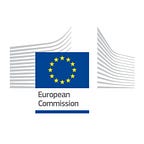What is International Humanitarian Law? And how does it affect EU aid?
Often referred to as IHL, international humanitarian law is a set of rules and principles which limit the effects of armed conflict.
International humanitarian law is part of public international law and has its basis in the 1949 Fourth Geneva Convention relative to the Protection of Civilians in Time of War and the 1977 and 2005 Additional Protocols.
All EU Member States have ratified the four Geneva Conventions and their additional protocols.
International humanitarian law spells out the responsibilities of states and non-state parties during armed conflict. It outlines the rights of individuals to receive humanitarian assistance, the protection of civilians (including medical and humanitarian workers), and the protection of rights of refugees, prisoners, the wounded and sick.
There are four humanitarian principles which guide the work of humanitarian actors:
Humanity — Human suffering must be addressed whenever it is found. The purpose of humanitarian action is to protect life, alleviate suffering and ensure respect for human beings.
Impartiality — Humanitarian action must be carried out on the basis of need alone. Priority must be given to the most urgent cases of distress and make no distinctions on the basis of nationality, race, gender, religious belief, class or political opinions.
Neutrality — Humanitarian actors must not take sides in hostilities or engage in activities of a political, racial, religious or ideological nature.
Independence — Humanitarian action must be independent from the political, economic, military objectives that any actors may hold with regard to areas where humanitarian action is being implemented.
What is the Commission doing to uphold IHL?
All European aid is in line with the four humanitarian principles; we help people in need regardless of who they are, their beliefs or where they come from. Additionally, the European Commission promotes the global respect of IHL.
1. We advocate for IHL and fund our humanitarian partners’ IHL advocacy activities.
2. We fund IHL training programmes targeting military/security forces and armed non-state actors in key conflict-affected countries.
3. We fund and implement large-scale information campaigns to raise awareness of IHL in the wider public.
4. We raise awareness among humanitarian partners worldwide about some of the unintended consequences of new counter-terrorism legislation and policies, which may limit humanitarian action, including training in IHL.
In current conflict zones such as Iraq and Syria, there is an increasing number of breaches of IHL; civilians caught up in the melee of war are unable to receive treatment and aid. The Commission continually calls for humanitarian access and does its best to help the people most in need.
Learn more about humanitarian aid here.
